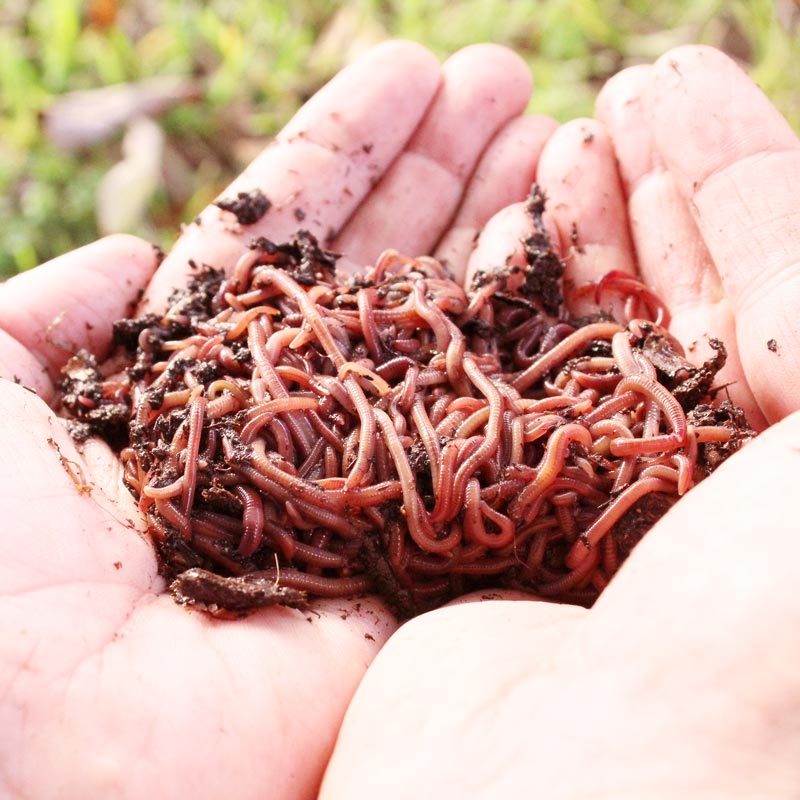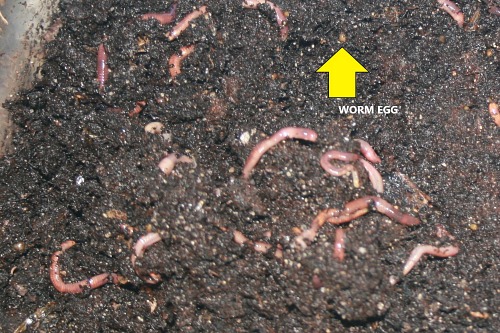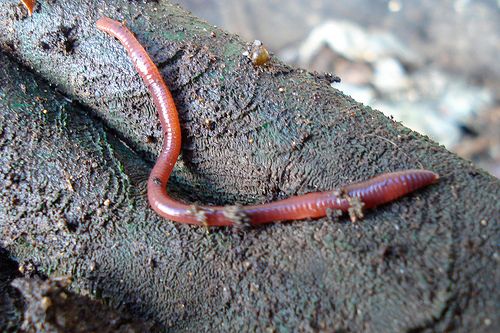Red Wiggler Worms Demystified: Unlocking the Tricks of Vermiculture for Greener Living and Nutrient-Rich Dirt
In the world of lasting practices for enhancing soil high quality and promoting eco-conscious living, red wiggler worms play a pivotal yet often neglected duty. These humble animals have the amazing ability to transform natural waste into nutrient-rich spreadings that function as a potent natural fertilizer. By delving right into the globe of vermiculture, one can discover a myriad of advantages that prolong far past standard composting methods. Comprehending the complexities of looking after these worms, optimizing their setting, and utilizing their spreadings can result in a greener lifestyle and healthier dirt for plants to thrive.
The Role of Red Wiggler Worms
Red Wiggler worms play a vital duty in composting systems by efficiently damaging down natural matter into nutrient-rich castings. These ravenous eaters take in a variety of organic products, such as cooking area scraps, yard waste, and paper products. As they feed, the worms' digestive system procedures damage down the raw material into a penalty, dark, and nutrient-dense material understood as worm castings or vermicompost.
The castings produced by Red Wiggler worms are very useful for soil health and plant growth. They are rich in important nutrients like potassium, nitrogen, and phosphorus, which are essential for sustaining healthy plant development. In addition, worm spreadings consist of advantageous microorganisms and enzymes that assist enhance dirt framework, boost water retention, and boost nutrient uptake by plants.
Benefits of Vermicomposting

Moreover, vermicompost, the nutrient-rich final result of vermicomposting, acts as an exceptional natural fertilizer and dirt conditioner. It improves soil framework, boosts soil oygenation, and enhances soil wetness retention. These residential or commercial properties add to much healthier plants with more powerful root systems and better resistance to pests and diseases. Vermicompost additionally enriches the dirt with important nutrients like potassium, phosphorus, and nitrogen, promoting plant development and general dirt fertility.
In addition, vermicomposting supports sustainable horticulture techniques by offering a chemical-free and natural option to artificial plant foods. Red Wiggler Worms. This ecologically pleasant approach not only enriches the dirt however likewise assists minimize reliance on hazardous chemicals, promoting a greener and extra lasting means of gardening
Establishing a Worm Container
When establishing a worm container for vermicomposting, appropriate configuration is vital to visit this web-site guarantee the success of the composting procedure. The first action in establishing up a worm bin is picking an ideal container.
After including the bed linen, introduce the red wiggler worms to the bin. It is recommended to begin with a tiny number of worms and gradually increase as they multiply. The worms must after that be offered with food scraps such as vegetables and fruit peels, coffee grounds, and eggshells. It is vital to avoid including meat, milk, oily, or salty foods to prevent drawing in bugs and developing unpleasant smells.
Regularly keep an eye on the dampness levels and temperature in the worm container to make certain optimal conditions for the worms. With appropriate setup and upkeep, the worm container will efficiently convert organic waste right into nutrient-rich garden compost for your plants and yard.
Gathering Worm Castings
To successfully accumulate nutrient-rich worm castings from your vermicomposting system, an organized harvesting technique is important. There are a couple of crucial steps to comply with to ensure a successful process when it comes time to harvest the worm spreadings. Firstly, stop adding fresh food scraps to one side of the worm bin for a couple of weeks before collecting. This motivates the worms to migrate to the side with fresh bed linens and food, making it easier to scoop out the castings from the various other side.

Troubleshooting Common Issues
Recognizing and dealing with usual challenges that might occur throughout the vermicomposting process is vital for keeping a healthy and efficient worm container. Including excess food scraps can lead to a build-up of wetness and level of acidity in the worm bin, possibly hurting the worms. An additional problem is undesirable smells originating see page from the worm bin.
In addition, if the worm populace is decreasing or the worms show up harmful, it could be as a result of ecological stressors such as severe temperature levels or pH degrees. Checking these variables and making essential modifications is crucial for the well-being of the worms. By troubleshooting these common concerns promptly, vermicomposters can ensure a successful and smooth vermicomposting process while keeping a thriving worm population.

Conclusion
In verdict, red wiggler worms play a critical function in vermiculture by breaking down organic issue into nutrient-rich soil. Setting up a worm container is crucial for effective vermiculture, and harvesting worm castings supplies important compost for horticulture.
As they feed, the worms' digestive system get redirected here procedures break down the natural issue right into a fine, dark, and nutrient-dense material recognized as worm spreadings or vermicompost.
The spreadings created by Red Wiggler worms are highly valuable for dirt health and wellness and plant growth. Adding excess food scraps can lead to an accumulation of moisture and level of acidity in the worm bin, possibly hurting the worms.In addition, if the worm population is declining or the worms appear harmful, it can be due to environmental stress factors such as severe temperature levels or pH degrees. Setting up a worm bin is crucial for effective vermiculture, and harvesting worm castings offers important garden compost for gardening.